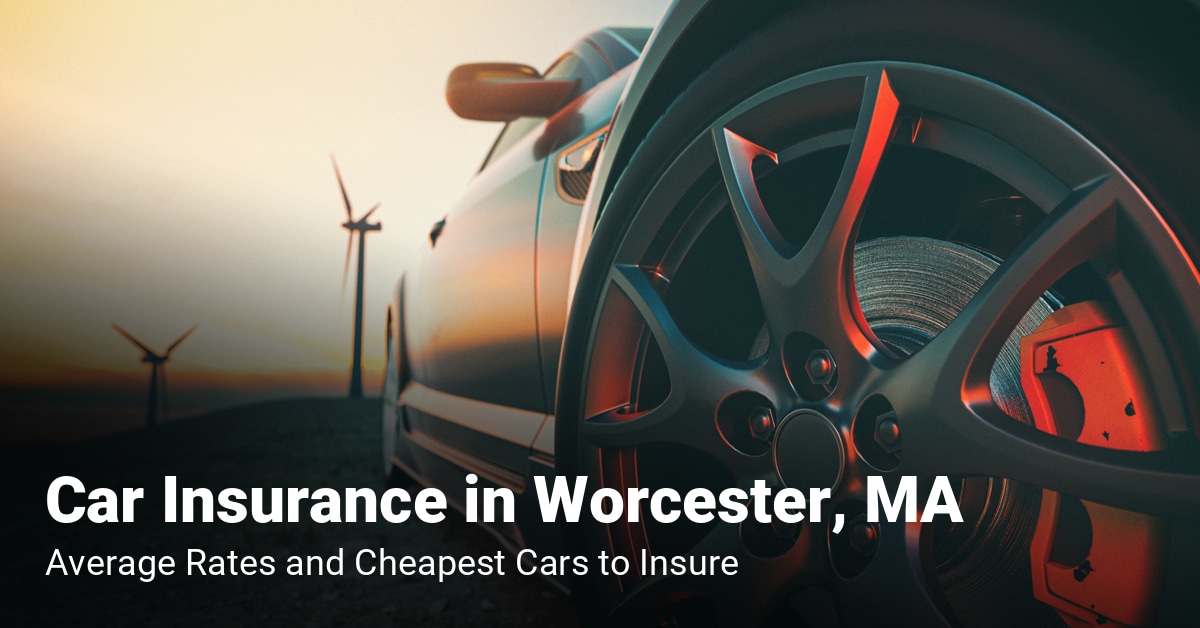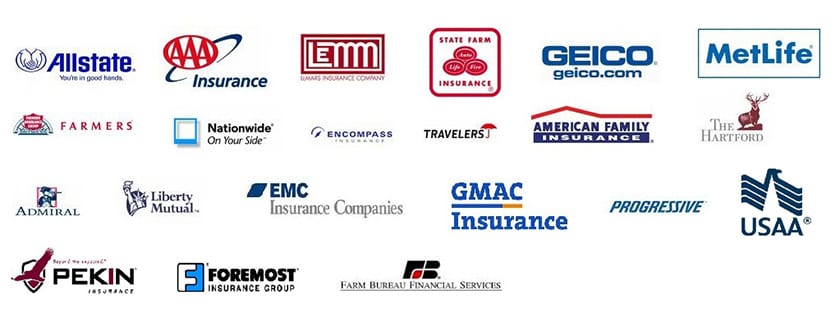The Bay State, known for its historical charm and vibrant culture, also presents a unique landscape for auto insurance. With a complex web of regulations, coverage options, and premium factors, understanding the intricacies of Massachusetts auto insurance is crucial for every driver.
This comprehensive guide dissects the essential aspects of auto insurance in Massachusetts, from legal requirements and coverage types to navigating the insurance market and understanding premium influencers. We’ll explore the unique needs of different driver demographics, delve into optional coverages, and provide insights into the evolving future of auto insurance in the state.
Understanding Auto Insurance in Massachusetts

Driving a car in Massachusetts comes with the responsibility of having auto insurance. The state mandates specific coverage levels to protect drivers, passengers, and others on the road. This article delves into the legal requirements and various types of auto insurance available in Massachusetts, offering insights on determining the appropriate level of coverage for your individual needs.
Massachusetts Auto Insurance Requirements
Massachusetts law requires all drivers to have a minimum level of auto insurance coverage. These mandatory coverages ensure financial protection in case of an accident.
- Liability Coverage: This coverage protects you financially if you cause an accident that injures someone or damages their property. It covers the other party’s medical expenses, lost wages, and property damage. The minimum liability coverage required in Massachusetts is:
- Bodily Injury Liability: $20,000 per person, $40,000 per accident
- Property Damage Liability: $10,000 per accident
- Personal Injury Protection (PIP): This coverage pays for your medical expenses and lost wages, regardless of who is at fault in an accident. The minimum PIP coverage required in Massachusetts is $8,000 per person.
- Uninsured/Underinsured Motorist Coverage: This coverage protects you if you are involved in an accident with a driver who does not have insurance or has insufficient insurance. It covers your medical expenses, lost wages, and property damage. The minimum uninsured/underinsured motorist coverage required in Massachusetts is the same as your liability coverage limits.
Types of Auto Insurance Coverage in Massachusetts
Beyond the mandatory coverage, you can choose additional insurance options to enhance your protection.
- Collision Coverage: This coverage pays for repairs or replacement of your vehicle if it is damaged in an accident, regardless of fault.
- Comprehensive Coverage: This coverage protects your vehicle from damage caused by events other than accidents, such as theft, vandalism, fire, or hail.
- Rental Reimbursement: This coverage provides reimbursement for rental car expenses if your vehicle is damaged and cannot be driven.
- Roadside Assistance: This coverage provides assistance with services such as towing, flat tire changes, and jump starts.
Determining Appropriate Auto Insurance Coverage
The right amount of auto insurance coverage depends on your individual needs and financial situation. Consider the following factors:
- Value of your vehicle: If your vehicle is worth a significant amount, you may want to consider higher collision and comprehensive coverage limits.
- Your driving history: Drivers with a history of accidents or violations may need higher liability coverage limits.
- Your financial situation: You should choose coverage levels that you can afford to pay for.
- Your driving habits: If you drive frequently or in high-traffic areas, you may want to consider higher liability coverage limits.
Factors Influencing Auto Insurance Premiums in MA

Auto insurance premiums in Massachusetts are influenced by a variety of factors, each contributing to the final cost you pay. Understanding these factors can help you make informed decisions about your insurance coverage and potentially reduce your premiums.
Driving History
Your driving history is a major factor in determining your auto insurance premiums. Insurance companies consider your past driving record, including accidents, traffic violations, and even points accumulated on your license.
- A clean driving record with no accidents or violations typically results in lower premiums.
- Accidents, especially those involving injuries or property damage, can significantly increase your premiums.
- Traffic violations, such as speeding tickets, can also lead to higher premiums.
Vehicle Type
The type of vehicle you drive also impacts your auto insurance premiums.
- High-performance cars and SUVs are generally considered riskier to insure due to their potential for higher repair costs and increased likelihood of accidents.
- Older vehicles, especially those with safety features lacking in newer models, may also have higher premiums.
- Vehicles with advanced safety features, such as anti-lock brakes and airbags, can qualify for discounts.
Age
Your age plays a role in your auto insurance premiums.
- Younger drivers, especially those under 25, are statistically more likely to be involved in accidents and are often charged higher premiums.
- As drivers age, their premiums typically decrease, reflecting a lower risk profile.
Location
The location where you live can also influence your auto insurance premiums.
- Areas with higher rates of car theft or accidents tend to have higher insurance premiums.
- Urban areas often have higher premiums due to increased traffic density and potential for accidents.
- Rural areas may have lower premiums due to lower traffic volumes and fewer potential accident risks.
Insurance Provider Comparison
Auto insurance premiums can vary significantly between different insurance providers in Massachusetts. It’s essential to compare quotes from multiple companies to find the best rates.
- Consider factors like coverage options, customer service, and financial stability when comparing providers.
- Use online comparison tools or contact insurance agents directly to obtain quotes.
- Don’t hesitate to negotiate with providers to potentially secure lower premiums.
Strategies for Reducing Auto Insurance Premiums
Several strategies can help you reduce your auto insurance premiums in Massachusetts.
- Maintain a clean driving record by avoiding accidents and traffic violations.
- Consider driving a vehicle with safety features that can qualify for discounts.
- Increase your deductible to lower your premium, but ensure you can afford to pay the deductible in case of an accident.
- Bundle your auto insurance with other policies, such as homeowners or renters insurance, to potentially qualify for discounts.
- Shop around for quotes from different insurance providers and compare coverage options and premiums.
- Ask about discounts available for good students, safe drivers, and other factors.
Navigating the Insurance Market in MA
Navigating the auto insurance market in Massachusetts can be a complex process, but understanding the key steps and considerations can make it more manageable.
Obtaining an Auto Insurance Quote in MA
To obtain an auto insurance quote in Massachusetts, follow these steps:
- Gather Your Information: Before contacting insurance providers, collect essential information, including your driver’s license details, vehicle information (make, model, year), and details about your driving history (accidents, violations).
- Contact Insurance Providers: Reach out to multiple insurance companies to obtain quotes. You can do this online, over the phone, or by visiting an insurance agent in person.
- Provide Required Information: When you contact an insurance provider, they will ask you for specific details about your vehicle, driving history, and coverage preferences. Be prepared to provide this information accurately.
- Compare Quotes: Once you have received quotes from multiple providers, compare them carefully, considering factors such as premium costs, coverage options, and customer service.
- Choose a Policy: Select the policy that best meets your needs and budget.
Comparing Auto Insurance Quotes
Comparing different insurance quotes is crucial to finding the best value. Here are some key factors to consider:
- Premium Costs: Compare the monthly or annual premium costs across different providers. Look for the lowest premiums while ensuring adequate coverage.
- Coverage Options: Evaluate the coverage options offered by each provider. Consider factors like liability limits, collision and comprehensive coverage, and uninsured/underinsured motorist coverage.
- Deductibles: Higher deductibles typically lead to lower premiums. However, be sure you can afford the deductible if you need to file a claim.
- Discounts: Check if the provider offers discounts for factors such as safe driving, good student status, or multiple policies.
- Customer Service: Consider the provider’s reputation for customer service. Read online reviews and check their complaint history with the Massachusetts Division of Insurance.
Filing a Claim with an Auto Insurance Provider
If you need to file a claim with your auto insurance provider in Massachusetts, follow these steps:
- Report the Accident: Contact your insurance provider immediately after the accident to report the incident. Provide details about the accident, including the date, time, location, and any injuries involved.
- File a Claim: Your insurance provider will guide you through the claim filing process. They may ask you to provide additional information, such as police reports or witness statements.
- Cooperate with the Investigation: Work with your insurance provider and any investigators to gather necessary information and documentation.
- Seek Repairs: Once your claim is approved, you can seek repairs for your vehicle. Your insurance provider may have preferred repair shops or guidelines for repairs.
Special Considerations for MA Drivers

Massachusetts has specific insurance requirements and considerations for various driver demographics. Understanding these nuances can help drivers ensure they have the right coverage and avoid potential penalties.
Insurance Requirements for Specific Driver Demographics
Massachusetts law mandates specific insurance requirements for certain driver groups, including young drivers, senior drivers, and those with medical conditions.
- Young Drivers: Massachusetts has a graduated driver’s licensing (GDL) system for young drivers. Under this system, drivers under 18 years old must complete a series of steps before obtaining a full driver’s license, including supervised driving hours and a period of restricted driving. This GDL program aims to improve driver safety and reduce accidents. Young drivers, especially those under 25, often face higher insurance premiums due to their higher risk profile. They may be required to carry higher liability limits or have additional coverage, such as uninsured/underinsured motorist coverage.
- Senior Drivers: While senior drivers may have more experience, they are also more susceptible to certain health conditions that could affect their driving ability. Massachusetts does not have mandatory driver re-testing requirements for seniors. However, some insurance companies may require senior drivers to undergo a medical evaluation or driving assessment to determine their eligibility for coverage.
- Drivers with Medical Conditions: Drivers with certain medical conditions, such as epilepsy or diabetes, may be required to disclose these conditions to their insurance company. The insurer may require additional information, such as medical documentation, to assess the driver’s risk and determine appropriate coverage. It is important to note that failing to disclose a medical condition could result in the insurer denying coverage or voiding the policy if an accident occurs.
Optional Insurance Coverages
Massachusetts drivers can choose from a variety of optional insurance coverages to enhance their protection beyond the state’s minimum requirements.
- Roadside Assistance: This coverage provides assistance for situations like flat tires, dead batteries, and lockouts. It can be particularly useful for drivers who frequently travel long distances or live in areas with limited roadside assistance services.
- Rental Car Reimbursement: This coverage helps cover the cost of a rental car if your vehicle is damaged or stolen and you need a temporary replacement. It can be particularly beneficial if you rely on your car for work or have frequent travel plans.
- Uninsured/Underinsured Motorist Coverage: This coverage protects you if you are involved in an accident with a driver who does not have insurance or does not have enough insurance to cover your losses. It can help pay for medical expenses, lost wages, and vehicle damage.
Impact of Driving Laws and Regulations
Massachusetts has various driving laws and regulations that directly influence auto insurance premiums.
- Speeding Tickets and Traffic Violations: Drivers with a history of speeding tickets and traffic violations are considered higher risk by insurance companies. This can lead to higher premiums, as they are more likely to be involved in accidents.
- DUI/DWI Convictions: Drivers convicted of driving under the influence (DUI) or driving while intoxicated (DWI) face significantly higher insurance premiums. These convictions indicate a higher risk of future accidents and can result in policy cancellations or refusals.
- Mandatory Safety Features: Massachusetts requires certain safety features in new vehicles, such as anti-lock brakes and electronic stability control. These features can help prevent accidents and may result in lower insurance premiums.
Resources for MA Drivers
Navigating the complexities of auto insurance in Massachusetts can be overwhelming. Fortunately, numerous resources are available to help MA drivers understand their options and make informed decisions. These resources include government agencies, consumer protection groups, and insurance providers, each offering valuable information and support.
Insurance Providers
Insurance providers in Massachusetts offer a variety of auto insurance products and services. It is essential to compare quotes from multiple providers to find the best coverage at the most competitive price. The following table lists some of the major insurance providers in Massachusetts, along with their websites and contact information.
| Insurance Provider | Website | Contact Information |
|---|---|---|
| Liberty Mutual Insurance | https://www.libertymutual.com/ | 1-800-225-2424 |
| State Farm Insurance | https://www.statefarm.com/ | 1-800-424-4242 |
| GEICO | https://www.geico.com/ | 1-800-442-4426 |
| Progressive Insurance | https://www.progressive.com/ | 1-800-776-4737 |
| Allstate Insurance | https://www.allstate.com/ | 1-800-255-7828 |
Government Agencies
Government agencies play a vital role in regulating the insurance industry and protecting consumers. The Massachusetts Division of Insurance (DOI) is responsible for overseeing insurance companies and ensuring that they comply with state laws. The DOI also provides resources to consumers, including information on insurance policies, complaint procedures, and consumer rights.
| Government Agency | Website | Contact Information |
|---|---|---|
| Massachusetts Division of Insurance | https://www.mass.gov/orgs/division-of-insurance | (617) 521-7794 |
Consumer Protection Groups
Consumer protection groups advocate for the rights of consumers and provide information and support on a variety of issues, including insurance. These groups can help consumers understand their rights, file complaints, and resolve disputes with insurance companies.
| Consumer Protection Group | Website | Contact Information |
|---|---|---|
| Massachusetts Public Interest Research Group (PIRG) | https://masspirg.org/ | (617) 423-2300 |
| Consumer Reports | https://www.consumerreports.org/ | (914) 378-1000 |
Other Resources
In addition to insurance providers, government agencies, and consumer protection groups, there are other resources available to MA drivers. The Massachusetts Department of Transportation (MassDOT) provides information on traffic safety, driver education, and other transportation-related issues. The Massachusetts Registry of Motor Vehicles (RMV) offers services such as vehicle registration, driver licensing, and title transfers. The RMV also provides information on insurance requirements and other important regulations.
| Resource | Website | Contact Information |
|---|---|---|
| Massachusetts Department of Transportation | https://www.mass.gov/orgs/massdot | (857) 521-8000 |
| Massachusetts Registry of Motor Vehicles | https://www.mass.gov/rmv | (857) 368-8000 |
Case Studies

Understanding the practical implications of auto insurance in Massachusetts can be best achieved through real-world examples. These case studies illustrate how different scenarios unfold and the importance of having adequate coverage.
The Impact of Uninsured Motorist Coverage
Consider a scenario where a Massachusetts resident, Sarah, is involved in an accident caused by an uninsured driver. Sarah’s vehicle is significantly damaged, and she sustains injuries requiring medical treatment. This situation highlights the importance of uninsured motorist coverage. Sarah’s policy, which includes this coverage, compensates her for her medical expenses, lost wages, and vehicle repairs, despite the other driver’s lack of insurance.
Navigating a Collision with a Hit-and-Run Driver
Another common scenario in Massachusetts involves hit-and-run accidents. Imagine a family driving in Boston when their car is struck by another vehicle that flees the scene. The family’s car is damaged, and a passenger suffers minor injuries. This incident underscores the value of comprehensive and collision coverage. These coverages compensate the family for vehicle repairs and medical expenses, even when the other driver cannot be identified.
Understanding the Benefits of Personal Injury Protection (PIP)
Massachusetts requires all drivers to carry personal injury protection (PIP) coverage. PIP benefits cover medical expenses and lost wages for the insured driver and passengers, regardless of fault in an accident. For instance, a driver named John, involved in an accident where he is at fault, can still access PIP benefits for his medical treatment and lost income.
The Importance of Adequate Liability Coverage
Adequate liability coverage is crucial for protecting drivers from significant financial consequences in the event of an accident. Imagine a driver named Emily who causes an accident resulting in substantial injuries to the other driver and their passengers. Emily’s liability coverage, with a limit of $100,000 per person and $300,000 per accident, would cover the costs of medical expenses, lost wages, and other damages incurred by the other parties. However, if the damages exceed the policy limits, Emily could face significant personal financial liability.
Future Trends in Auto Insurance in MA
The auto insurance landscape in Massachusetts is evolving rapidly, driven by technological advancements, changing consumer expectations, and regulatory shifts. Key trends shaping the future of auto insurance in the state include the increasing adoption of telematics and the emergence of autonomous vehicles.
Telematics and Usage-Based Insurance
Telematics, the use of technology to monitor and analyze driving behavior, is transforming how auto insurance is priced and managed. Telematics devices, such as smartphone apps or plug-in dongles, collect data on driving habits, including speed, braking, and mileage. This information allows insurers to assess individual risk more accurately and offer personalized premiums based on actual driving behavior.
- Lower Premiums for Safe Drivers: Drivers with good driving habits, such as those who avoid speeding or hard braking, can benefit from lower premiums through usage-based insurance (UBI) programs.
- Increased Transparency and Control: Telematics provides drivers with insights into their driving habits and helps them identify areas for improvement, potentially leading to safer driving practices.
- Potential for Discounts and Rewards: Insurers may offer discounts or rewards to drivers who exhibit safe driving behavior, encouraging responsible driving practices.
Autonomous Vehicles and the Future of Auto Insurance
The development of autonomous vehicles (AVs) presents both opportunities and challenges for the auto insurance industry. While AVs have the potential to significantly reduce accidents and improve road safety, they also raise questions about liability and insurance coverage.
- Shift in Liability: With AVs, the traditional model of driver liability may need to be reassessed. The question of who is responsible in the event of an accident involving an AV – the vehicle manufacturer, the software developer, or the owner – is a complex issue that needs to be addressed.
- New Insurance Products and Services: The emergence of AVs may lead to the development of new insurance products and services tailored to the specific risks and needs of autonomous vehicles.
- Potential for Reduced Premiums: If AVs prove to be significantly safer than human-driven vehicles, insurance premiums could potentially decrease for AV owners.
Closing Summary

As the automotive landscape continues to evolve with advancements in technology and changing driving habits, navigating the intricacies of auto insurance in Massachusetts becomes even more critical. By understanding your individual needs, comparing options carefully, and staying informed about the latest developments, you can ensure you have the right coverage to protect yourself and your finances on the road.

